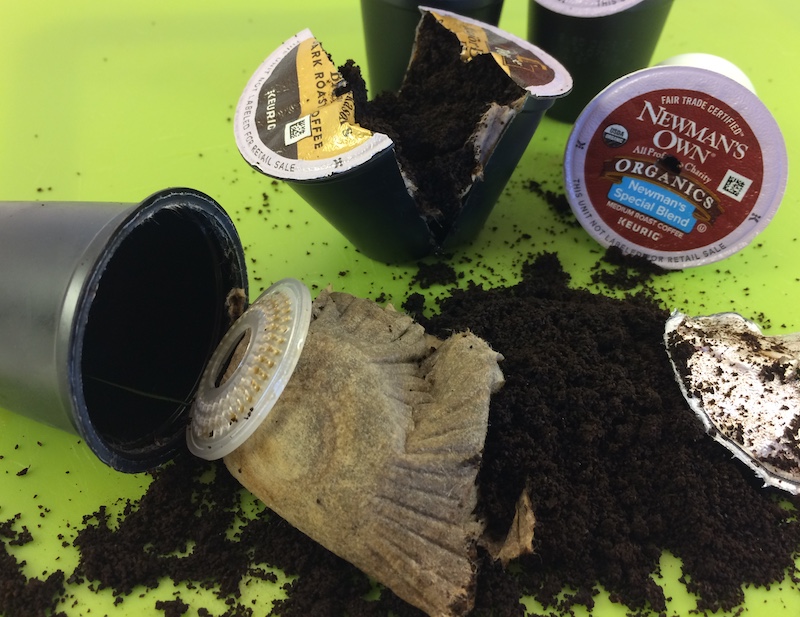K-Cup® Waste
Reduce Coffee Pod Waste
K-Cup®s have become super popular. Not surprising, since they’re quick and easy to use in our rushed society. With over 10 million pods sold each year, this non-recyclable #7 plastic is also quickly becoming a large scale waste problem.

Coffee Pod Waste
Green Mountain introduced a coffee pod last fall using #5 plastic in its container instead of the #7 plastic, which is recyclable in most cities. We have yet to see any other coffee pod makers use these new containers, but they are available from the Green Mountain website. Keurig is making a push to use these containers in all their lines by the end of this year in Canada and by 2020 in the United States.[1]. In the meantime, these pods are piling up in the trash.
K-Cup®s or, to be more generic, coffee pods are still mostly made with #7 plastic, which is not currently accepted at recycling plants. Furthermore, pods are not accepted for recycling if they contain coffee. Most pods contain coffee, unless they were hot chocolate or another powder that fully dissolved when being used. The new Green Mountain pod has the #5 recycling symbol on the bottom. With these new pods you need only to peel back the foil lid, compost the coffee and then put the plastic container into the regular recycling bin.
Coffee Pod Alternatives
Some solutions to the K-cup® and coffee pod waste
problem include the following:

Coffee Pod Waste
Additional Information
We think this is currently the best solution around for the K-cup recycling problem. These little gems can be placed into a K-cup machine instead of the individual pods, meaning that you don’t have to switch out the casing before using regular coffee. Buying one of these sets makes it so easy to load and go each morning then flip the coffee into the compost pile and rinse the pods to be ready for the next morning.
Pods are small, but they do add up over time.










